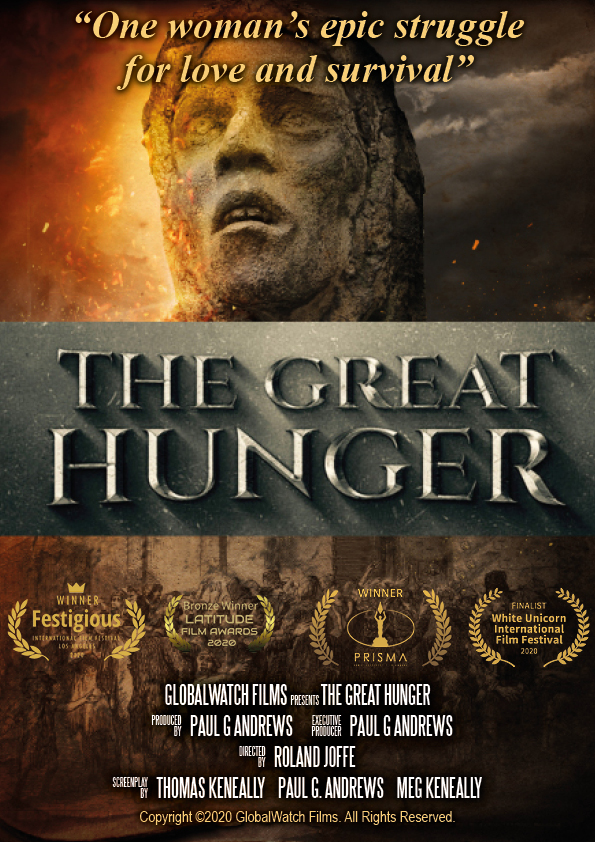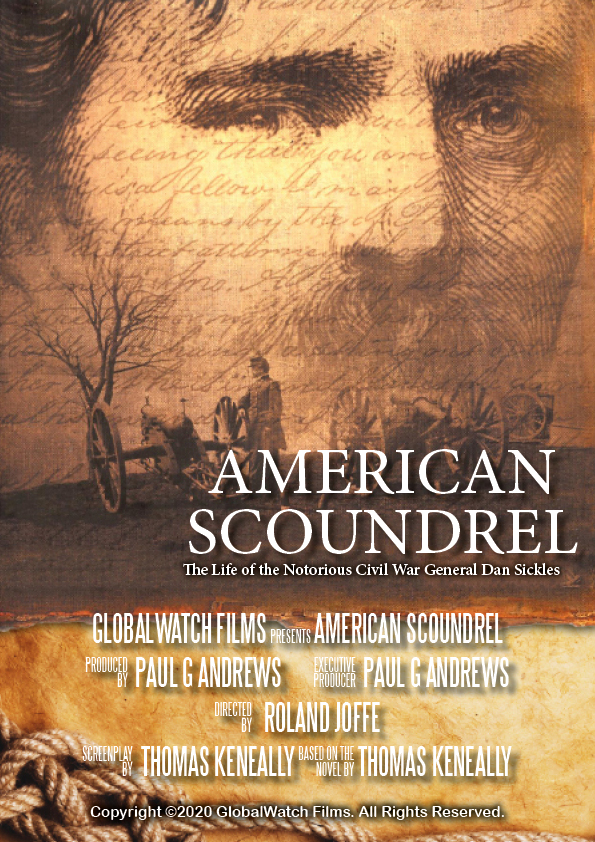You read that right! Double Academy Award nominee Roland Joffé is officially attached to direct two GlobalWatch projects: Irish historical epic The Great Hunger and American historical epic American Scoundrel.
Make sure you check the GlobalWatch website for the latest updates and developments on all of our great projects.

Roland Joffé was nominated for the Academy Award for Best Director for his movies The Killing Fields (1984) and The Mission (1986).
He won the prestigious Palme d’Or and also the Grand Technical Prize at the Cannes Film Festival for The Mission.
Roland has been directing for almost 50 years, and is excited to take on these two incredible stories.

Amidst the Great Potato Famine in Ireland, a young peasant girl struggles to keep her family alive all while falling in love with two very different men, one bent on revolution.
Written by Man Booker Prize winning author of Schindler’s Ark (later Academy Award winning film Schindler’s List) Thomas Keneally, and international award winning screenwriters Meg Keneally and Paul G Andrews, the screenplay has already won a number of international awards for Best Feature Screenplay.
The story of the Irish Famine remains unknown to many. Generations have come and gone, the story is as powerful as any story that has ever been told . The story has waited patiently for 170 years, it’s now time to share it with the rest of the world .

Hero, adulterer, bon vivant, murderer, and rogue, Dan Sickles led the kind of existence that was indeed stranger than fiction. Throughout his life he exhibited the kind of exuberant charm and lack of scruple that wins friends, seduces women, and gets people killed. In American Scoundrel Thomas Keneally, the acclaimed author of Schindler’s List, creates a biographic screenplay that is as lively and engrossing as its subject.
Dan Sickles was a member of Congress, led a controversial charge at Gettysburg, and had an affair with the deposed Queen of Spain—among many other women. But the most startling of his many exploits was his murder of Philip Barton Key (son of Francis Scott Key), the lover of his long-suffering and neglected wife, Teresa.
The affair, the crime, and the trial contained all the ingredients of melodrama needed to ensure that it was the scandal of the age. At the trial’s end, Sickles was acquitted and hardly chastened. His life, in which outrage and accomplishment had equal force, is a compelling American tale, told with the skill of a master narrative.
